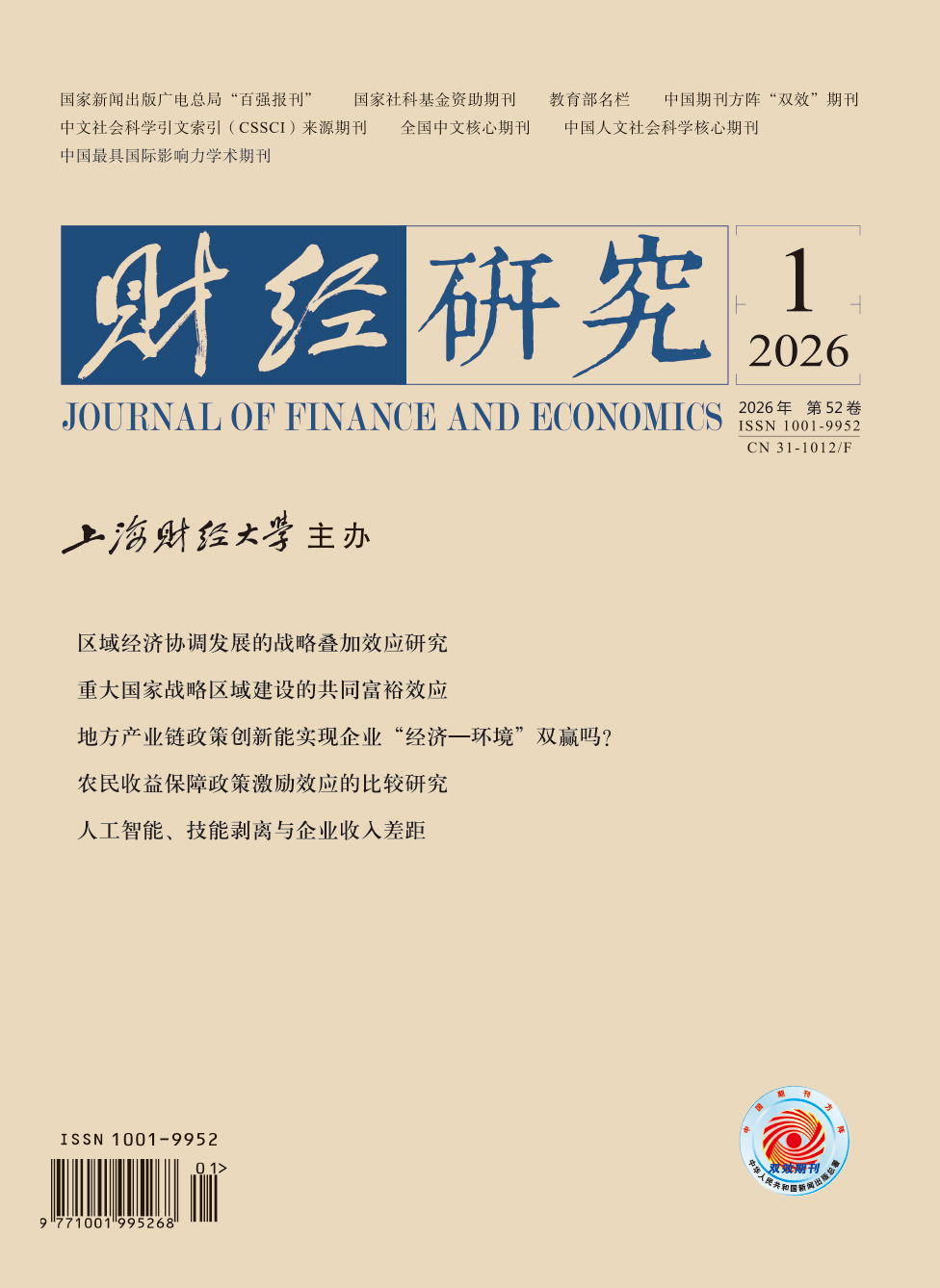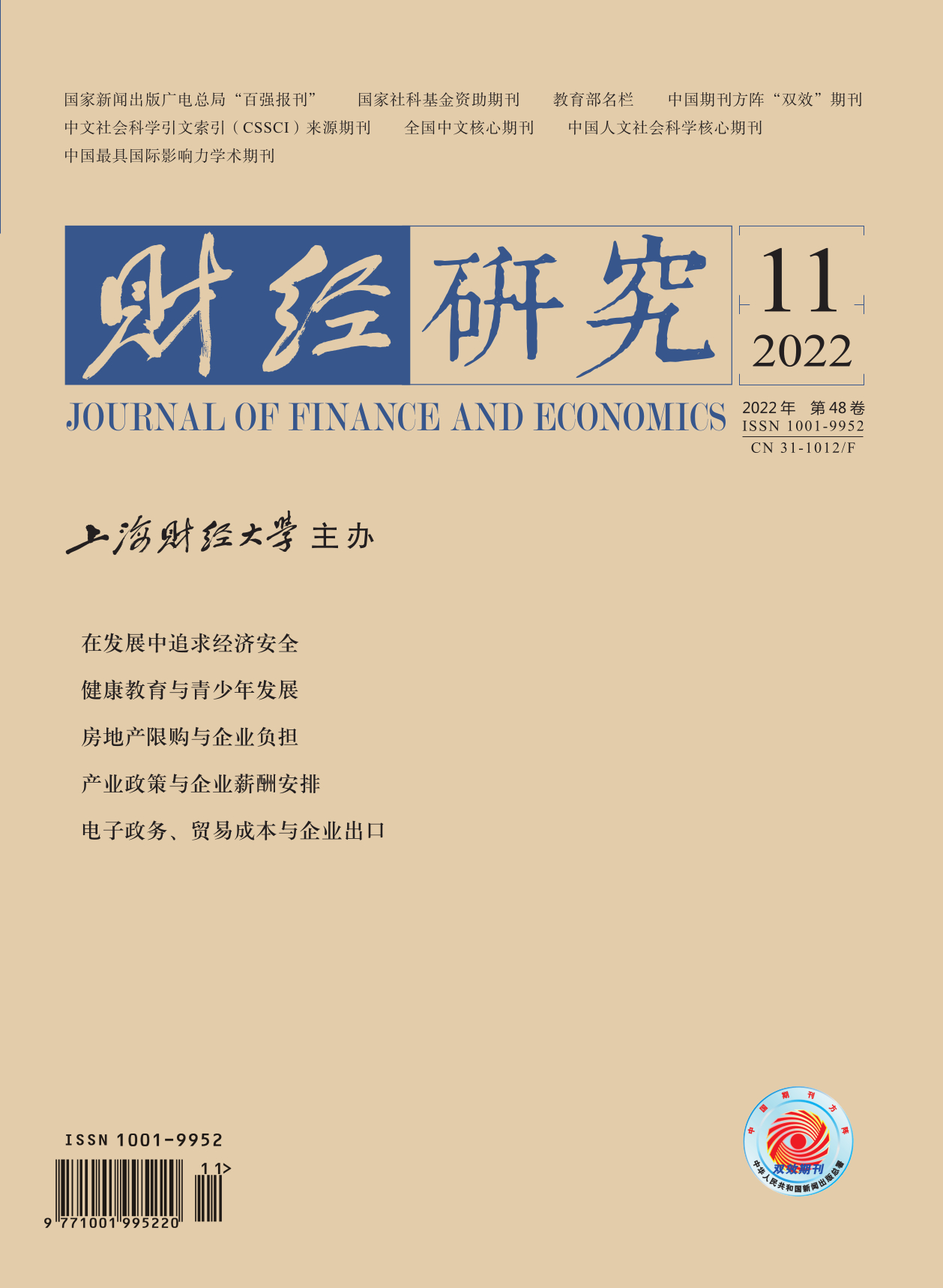青少年健康是实施健康中国战略的应有之义,健全的健康教育体系有助于促进青少年健康。同时,新冠肺炎疫情暴露出国民教育在公共卫生安全知识方面的短板。基于此,文章分析了中小学健康教育对青少年发展的影响。研究发现,健康教育对青少年健康状况具有显著的促进作用,而这种促进作用因健康教育的程度不同而存在差异,两阶段健康教育、小学健康教育以及初中健康教育的健康促进作用依次减弱。这种健康促进作用主要通过健康行为与生活方式、疾病预防以及心理健康三种机制实现。进一步分析发现,健康教育虽难以显著提高学业成绩,但能显著改善学业态度。文章从教育角度回答了如何将健康融入教育政策,并为预防公共卫生事件提供了一定的参考。
健康教育与青少年发展——兼论将健康融入教育政策
摘要
参考文献
4 黄超. 家长教养方式的阶层差异及其对子女非认知能力的影响[J]. 社会,2018,(6):216−240. DOI:10.3969/j.issn.1004-8804.2018.06.014
22 宗庆庆,李雪松. 基础教育中的同伴效应估计[J]. 财经研究,2018,(7):4−15. DOI:10.16538/j.cnki.jfe.2018.07.001
23 Arendt J N. Does education cause better health? A panel data analysis using school reforms for identification[J]. Economics of Education Review,2005,24(2): 149−160. DOI:10.1016/j.econedurev.2004.04.008
24 Baird S, Hicks J H, Kremer M, et al. Worms at work: Long-run impacts of a child health investment[J]. The Quarterly Journal of Economics,2016,131(4): 1637−1680. DOI:10.1093/qje/qjw022
25 Baltagi B H, Flores-Lagunes A, Karatas H M. The effect of education on health: Evidence from the 1997 compulsory schooling reform in Turkey[J]. Regional Science and Urban Economics,2019,77: 205−221. DOI:10.1016/j.regsciurbeco.2019.05.001
26 Becker G S. Human capital[M]. New York: Columbia University Press, 1964.
27 Bharadwaj P, Løken K V, Neilson C. Early life health interventions and academic achievement[J]. American Economic Review,2013,103(5): 1862−1891. DOI:10.1257/aer.103.5.1862
28 Blunch N H, Gupta N D. Mothers’ health knowledge gap for children with diarrhea: A decomposition analysis across caste and religion in India[J]. World Development,2020,126: 104718. DOI:10.1016/j.worlddev.2019.104718
29 Chen Y Y, Li H B. Mother’s education and child health: Is there a nurturing effect?[J]. Journal of Health Economics,2009,28(2): 413−426. DOI:10.1016/j.jhealeco.2008.10.005
30 Currie J. Healthy, wealthy, and wise: Socioeconomic status, poor health in childhood, and human capital development[J]. Journal of Economic Literature,2009,47(1): 87−122. DOI:10.1257/jel.47.1.87
31 Cutler D M, Lleras-Muney A. Education and health: Evaluating theories and evidence[A]. House J, Schoeni R, Kaplan G, et al. Making Americans healthier: Social and economic policy as health policy[M]. New York: Russell Sage Foundation, 2008.
32 Cutler D M, Lleras-Muney A. Understanding differences in health behaviors by education[J]. Journal of Health Economics,2010,29(1): 1−28. DOI:10.1016/j.jhealeco.2009.10.003
33 Ding W L, Lehrer S F, Rosenquist J N, et al. The impact of poor health on academic performance: New evidence using genetic markers[J]. Journal of Health Economics,2009,28(3): 578−597. DOI:10.1016/j.jhealeco.2008.11.006
34 Fadlon I, Nielsen T H. Family health behaviors[J]. American Economic Review,2019,109(9): 3162−3191. DOI:10.1257/aer.20171993
35 Ferrer-i-Carbonell A, Frijters P. How important is methodology for the estimates of the determinants of happiness?[J]. The Economic Journal,2004,114(497): 641−659. DOI:10.1111/j.1468-0297.2004.00235.x
36 Grossman M. On the concept of health capital and the demand for health[J]. Journal of Political Economy,1972,80(2): 223−255. DOI:10.1086/259880
37 Keats A. Women’s schooling, fertility, and child health outcomes: Evidence from Uganda’s Free Primary Education Program[J]. Journal of Development Economics,2018,135: 142−159. DOI:10.1016/j.jdeveco.2018.07.002
38 Kenkel D S. Health behavior, health knowledge, and schooling[J]. Journal of Political Economy,1991,99(2): 287−305. DOI:10.1086/261751
39 Lauderdale D S. Education and survival: Birth cohort, period, and age effects[J]. Demography,2001,38(4): 551−561. DOI:10.1353/dem.2001.0035
40 Lynch S M. Cohort and life-course patterns in the relationship between education and health: A hierarchical approach[J]. Demography,2003,40(2): 309−331. DOI:10.1353/dem.2003.0016
41 McCrary J, Royer H. The effect of female education on fertility and infant health: Evidence from school entry policies using exact date of birth[J]. American Economic Review,2011,101(1): 158−195. DOI:10.1257/aer.101.1.158
42 Mirowsky J, Ross C E. Education, personal control, lifestyle and health: A human capital hypothesis[J]. Research on Aging,1998,20(4): 415−449. DOI:10.1177/0164027598204003
43 Mocan N, Altindag D T. Education, cognition, health knowledge, and health behavior[J]. The European Journal of Health Economics,2014,15(3): 265−279. DOI:10.1007/s10198-013-0473-4
引用本文
王营, 曹廷求, 高睿. 健康教育与青少年发展——兼论将健康融入教育政策[J]. 财经研究, 2022, 48(11): 19-33.
导出参考文献,格式为:





 5416
5416  7131
7131

